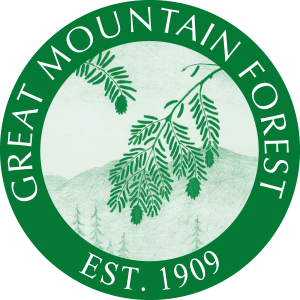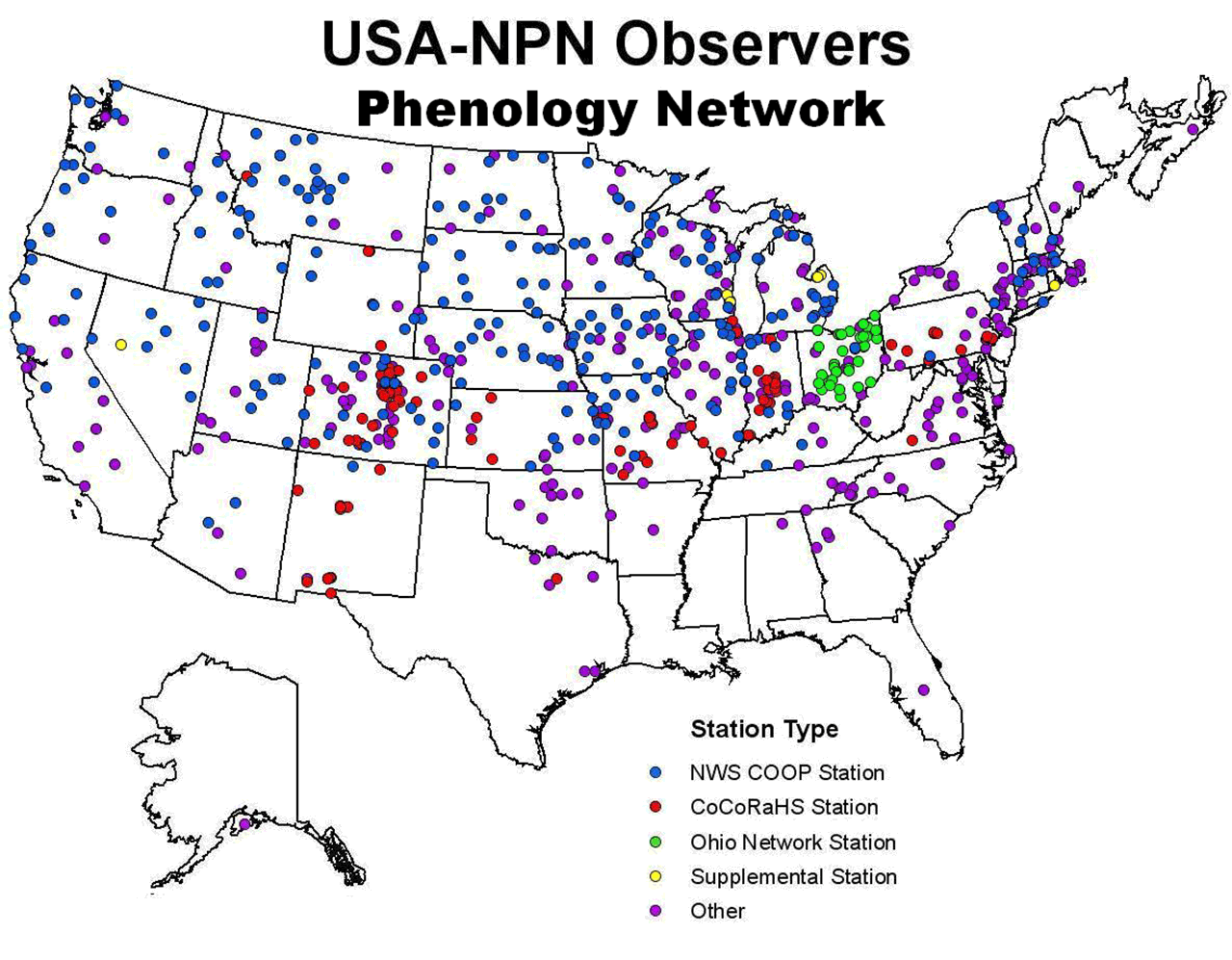
Climate change research
USA National Phenology Network
Great Mountain Forest is part of the USA National Phenology Network. Phenology is the science of periodic biological events in the animal and plant world as influenced by the environment, especially weather and climate. Phenology has been identified as a critical contributor to global climate change research. It has been stated that changes in phenology are the fingerprint of climate change.
Springtime characteristics of three cloned Persian Lilacs, planted in 1965 near the National Weather Service’s Norfolk 2SW weather station, have been recorded every year since 1968. Each spring, the dates when the lilacs reach the five “phenophases” (stages) are recorded and the data is submitted to the Eastern North American Phenology Network. Based on this data it has been said that Norfolk’s climate is quite similar to that of Rutland, Vermont, located some 120 miles to the north.
The five stages are:
Breaking leaf buds:
In at least three locations on the plant, a breaking leaf bud is visible. A leaf bud is considered “breaking” once the widest part of the newly emerging leaf has grown beyond the ends of its opening winter bud scales, but before it has fully emerged to expose the leaf stalk (petiole) or leaf base.
All leaf buds broken:
For the whole plant, the widest part of a new leaf has emerged from virtually all (95-100%) of the actively growing leaf buds.
Open flowers:
For the whole plant, at least half (50%) of the flower clusters have at least one open flower. The lilac flower cluster is a grouping of many, small individual flowers.
Full flowering:
For the whole plant, virtually all (95-100%) of the flower clusters no longer have any unopen flowers, but many of the flowers are still fresh and have not withered.
End of flowering:
For the whole plant, virtually all (95-100%) of the flowers have withered or dried up and the floral display has ended.
This program got its start at Montana State University, then transferred to the University of Wisconsin-Milwaukee. The program is currently managed through a cooperative agreement between the U.S. Geological Survey (USGS) and the University of Arizona.

Climate Change Research
Great Mountain Forest has a long history of supporting forest research. Many research institutions and their affiliates utilize GMF because of its locale, long-term ownership, diverse ecosystems and continuous weather collection data for the past 90 years.
Here is a list of past and current research on Climate Change.






